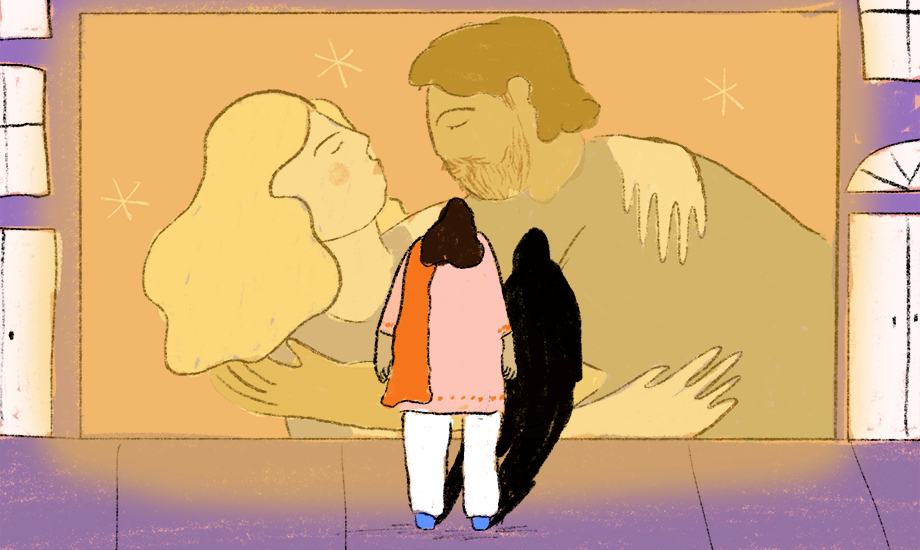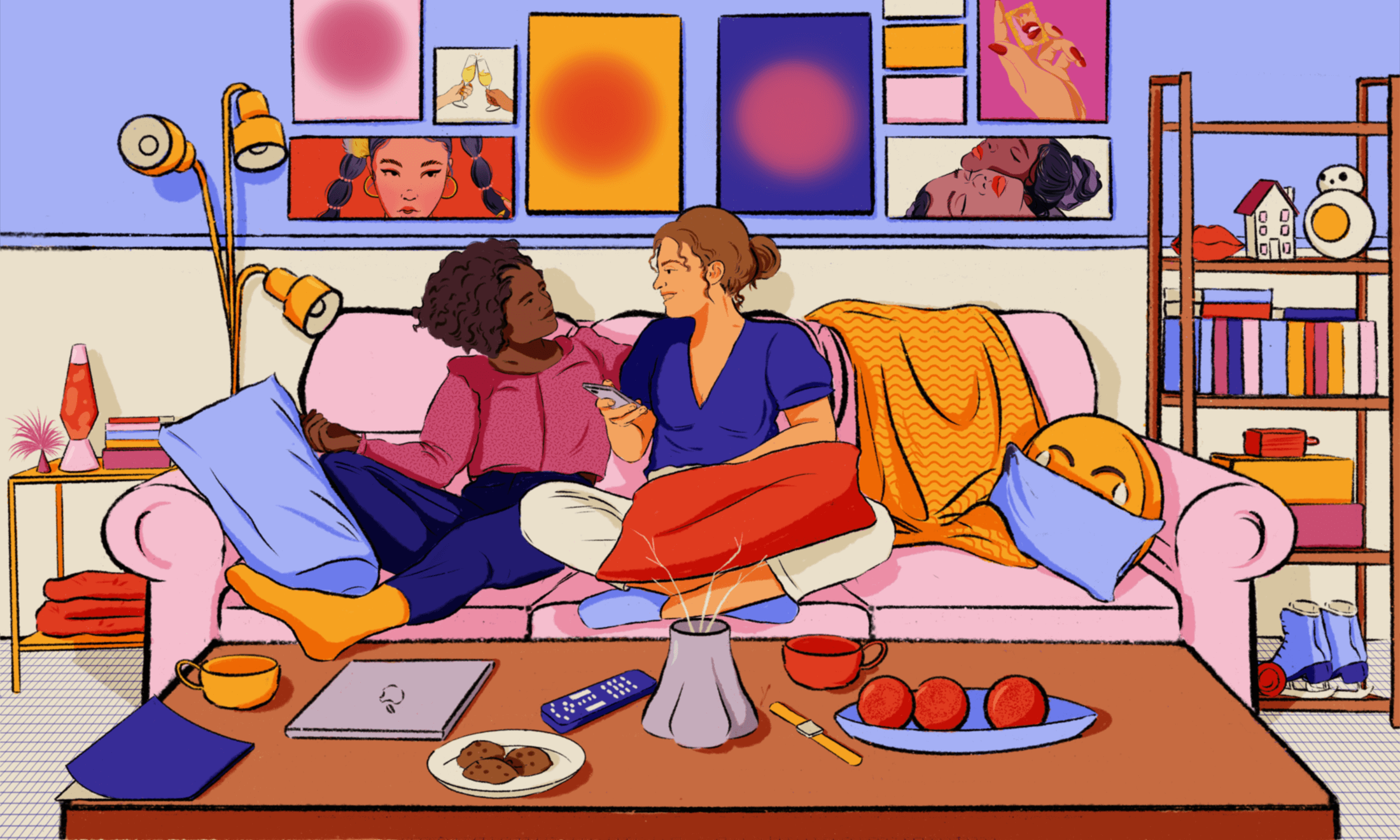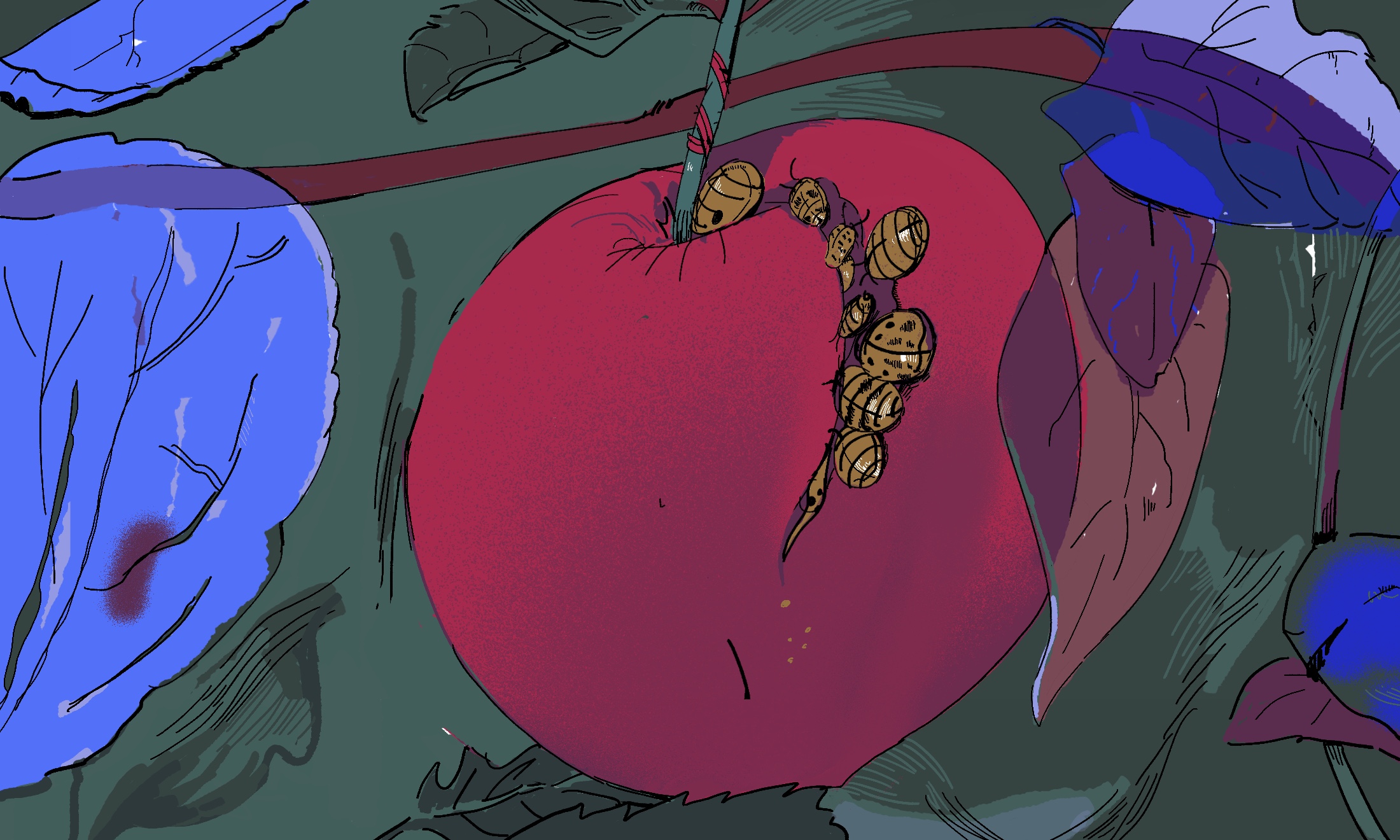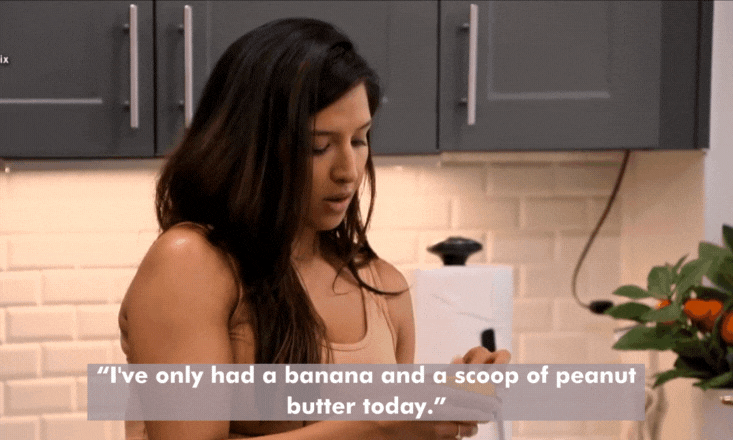
Alex Smyth
Western ideas of romance vs. Pakistani expectations
How can you build healthy romantic relationships when you have two distinctly different understandings of how they work?
Asyia Iftikhar
03 May 2021
I’ve always felt the push and pull of two distinctly different cultures around me – my Pakistani heritage and the British society I was brought up in. Whether through fashion, language or food, I’ve found the positives in having the privilege of simultaneously immersing myself in dual experiences. Yet when it comes to understanding love and relationships, the gap between these worlds sometimes feels insurmountable.
The bustle of 15 families, dressed in salwar kameez, scooping daal and aloo palak onto plastic plates before squeezing onto a squashed sofa is a familiar scene for many British-Pakistani Muslims. The buzz of banal talk, stale perfume and aromatic dishes are the bedrock of ‘dawats’ (translated in English as ‘feast’, although I know them best as ‘Asian gatherings’). However, beyond the familiarity of the buzz and the smells, there was one unspoken rule. Boys and girls did not talk.
There are exceptions to this general rule, under supervision or part of a wider group, an innocent chat between the opposite sexes isn’t cause for concern. But any sense of intimacy often felt so repressed that, for myself and my peers, the concept of ‘boyfriend’ or ‘girlfriend’ rarely crossed my thoughts.
“When it comes to understanding love and relationships, the gap between these worlds sometimes feels insurmountable”
This particularly conservative understanding of a relationship couldn’t be more removed from the usual circumstances in which many young British people meet. Often these are chaotic house parties or large scale events full of brash and impulsive decisions, overt flirting and, more times than not, no adult supervision – a rite of passage for British teenagers up and down the country. The first house party I went to, stepping out of rumours at school and into a stranger’s home (my parents blissfully unaware) was exhilarating and terrifying. The life of romantic intimacy inside and outside my home had never been placed in such stark contrast.
A general idea has manifested in my community, in that there comes a stage in a woman’s life where she’s supported by her family to find a suitable man. Growing up, this is the benchmark I measured my life by, counting the years of my youth away. For the older generation this is how the world worked. Despite living in a different country, upholding cultural norms such as this, maintains a connection with our motherland and sense of community. I’ve always found this frustrating, especially when the ideals that our parents and grandparents remember from their hometowns no longer really exist.
“For many Pakistanis back home, time has moved on”
For many Pakistanis back home, time has moved on and from stories I’ve heard, people are more open to modernising romantic relationships. Cousins have mixed friend groups, and clothing isn’t as harshly regimented at gatherings (you may even catch a glimpse of a sleeveless top!). At home, my childhood was a tapestry of segregated rooms and tights and cardigans in 28 degree heat. For second and third generation immigrants, born and brought up in the UK, maintaining values from decades ago creates a unique and at times unnecessary contrast between the Pakistani diaspora and western culture.
Trying to explore and reflect on romantic relationships, often behind the backs of our immigrant parents, has been a confronting task. When I was younger, physical intimacy was branded as abhorrent by my immediate community, while sex and lust was incorporated into everyday interactions, from the mainstream media to advertising billboards across the city.
Also, because casual relationships aren’t openly spoken among mine and my Pakistani friends’ families, there have been practically no discussions around emotional intimacy. This has meant that I’ve relied on mainstream media to provide narratives on modern love.
“My attitude to romantic relationships has been completely warped and twisted by the constant conflict of expectation”
As a result my attitude to romantic relationships has been completely warped and twisted by the constant conflict of expectation. On the one hand, for some in the Pakistani Muslim community, love comes after building a marriage, while others are expected to progress from never considering a relationship to finding the perfect person when they reach the right age. Yet on the other hand, I see that for many Western couples, it takes years of dating to even say ‘I love you’. There are also those who hop from one relationship into another, giving them the space to explore what they want.
An assortment of experiences colour my everyday understanding of love, but without an outlet to process what this means for those of us bound by culture or expectation, it’s a difficult reality to swallow. It feels like from all sides there’s an expectation on finding the right way to ‘love’ or pursuing a relationship.
I’m slowly unlearning all the barriers and restrictions put in place from my youth. I’m trying to find a balance between accepting my sexuality and not shame myself for dating people, whilst also finding someone who understands and respects my culture and community. I hope that in doing so the next generation of the Pakistani diaspora can break free of this cycle and reimagine what romance means for them.









